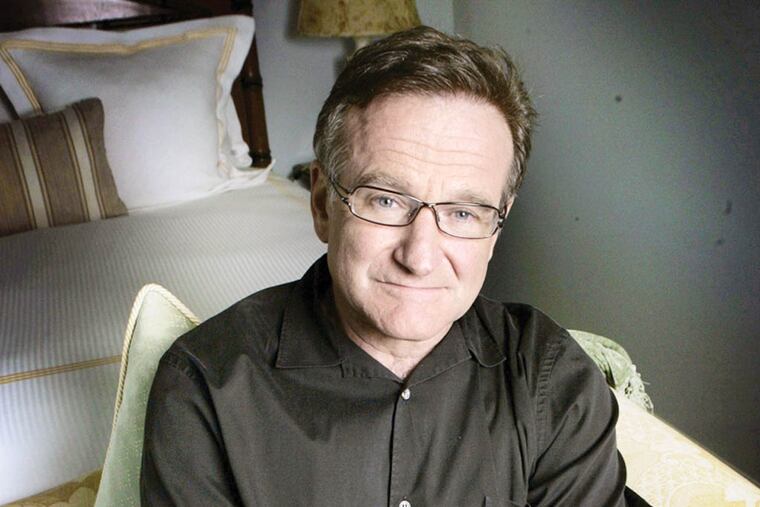More questions than answers
We are all shocked and saddened by this week's apparent suicide of Robin Williams. It leaves us all with a number of questions, including:

We are all shocked and saddened by this week's apparent suicide of Robin Williams. It leaves us all with a number of questions, including:
How could it happen to him? He was so successful.
Why couldn't they cure him? He had access to the best mental health care available.
Why couldn't this be prevented? Couldn't anyone see it coming?
If it happened to him, could it happen to anyone?
Most people underestimate the severity and epidemic proportions of depression, which Williams reportedly suffered from. Why else would most health plans offer such inferior coverage for mental-health treatment compared with what they do for skin rashes.
One could argue indefinitely about what percentage of depression is genetic, biochemical, or cognitive in origin; but it's clear that once you have it, you need a great amount of qualified professional help to recover.
And there is no happy pill. Prozac was never a cure-all. Way too many doctors, pharmaceutical firms, and health-insurance entities would rather you take the medicine rather than go repeatedly to a qualified psychotherapist. Yes, it's true that we cannot tell you in advance how many sessions it would take to get you on even keel. And yet insurance-plan providers, people who often are without any mental-health training, think they can decide.
Depression respects no borders, not education, race, religion, ethnicity, gender, or age. It is clearly exacerbated by life events but the number of highly successful people who suffer with it is very high. Take a look at Darkness Visible: A Memoir of Madness by prize-winning author William Styron. The book is a short but elegant introduction to the vortex of helplessness and hopelessness that he felt, even as he was at the pinnacle of success.
Undoubtedly, Robin Williams had access to world-class professionals. Did he use them effectively? Even if he attended therapy on a regular basis, it still only adds up to several hours a week. Unless you buy your own psychologist, someone who can live with you 24/7, you are going to have many more hours without that support than with it.
It is essential that your network of support also includes family and friends, people who can be with you through your own darkest hours; that is difficult because bouts of depression can last for protracted periods of time and, frankly, people get tired of your depression. Some of that reaction is based on the fear of contagion, but some of it is simply the wish to not to be burdened.
Suicide cannot be accurately predicted or prevented. That is the real tragedy. Many people who discuss suicidal intent never follow through; many who succeed have never told anyone. If one makes a suicide attempt and survives, most of the time that person would be hospitalized in a psychiatric facility or wing - for 72 hours. Then they are back home again.
It's almost impossible for anyone to imagine the extreme and unremitting pain of self-loathing and fear that envelopes you in a major depression. Unless you've been there yourself. Or unless you have treated many people who have it. Or both.
If we were truly a compassionate society, we would not turn our heads when this type of tragedy occurs, but use it as an opportunity to make sure we, and everyone we love and know, receive the kind of care needed to feel whole again.
After almost 40 years as a psychologist, I'm proud of all the people I've helped and who have helped me learn more about the insidious malignancy of depression. I wish we had a cure, or a vaccine. We know all too well that we don't.